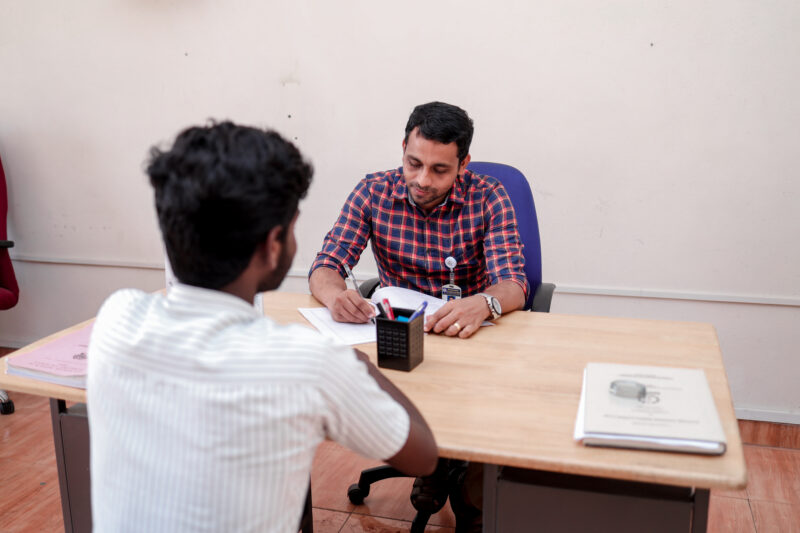
Mentoring is a personal and professional relationship that develops over time & to be built on mutual trust and respect. A mentor is someone who takes a keen interest in helping another person develop into a successful professional.
Since the institution is a home away from home, of a student, a mentor is a guardian, friend, philosopher, guide and counsellor in the campus. It is one of the most challenging and rewarding voluntary jobs a teacher ever undertakes as part of his/ her profession.
Mentoring objectives
- Uplift the student to a professional platform.
- Orient the students towards a vision & mission for life.
- Develop a clarity about life & career.
- Help the mentee to understand self (Strength & Weakness) & Help to develop methods to promote strengths & overcome weaknesses.
- Guide through adversity and disappointments as well as successes.
- Lead Mentee towards healthy relationships & better public behaviour.
- Build ability to think in a structural way-plan work & work to plan.
- Help developing individual time management schemes.
ART OF MENTORING
Mentors invest time, effort & energy for the holistic development of the mentee.
Many people feel that being a mentor requires special skills, but mentors are humans who are sincere & committed in their duties & responsibilities and ready to extend a helping hand to those who are in need.
| “The greatest gift you can give someone is your time because when you dedicate your time, you are offering part of your life that you will never get back.” |
- The most important factor in mentoring is that the mentee must trust & respect his/her mentor & both are comfortable with the kind of information shared.
- The first step is to establish rapport with the mentee & win their trust and respect.
- An ideal mentor should be ready to share his time, skills, knowledge and expertise for the benefit of the mentee. He/ She should accept the mentee without prejudices.
- Collect all the information regarding the mentee: academic, co-curricular, personal, family background, character, conduct, behaviour, manners & mannerisms etc…. & record them.
- Conduct frequent personal meeting with the mentee. Listen very carefully to what he /she speaks. Maintain eye contact & give full attention. Never give an expression that you disbelieve them- even though you are very sure that what he/she speaks is not the real fact. Slowly & very tactfully try to correct them & lead them to the correct path. The issues discussed during mentoring sessions must be treated in the strictest of confidence.
- Record all points you noted – which you think can be taken care of – regarding the mentee & closely watch the improvement. Also keep close watch over all activities of your mentee.
- Collect mentee’s suggestions for his-own improvement & motivate them to implement it. If they don’t have any suggestions, give some creative inputs and help them come up with some ideas of their own. Never make them follow your plans.
- Make yourself available whenever your mentee needs you, provide guidance & constructive feedbacks. If you have some confusions, seek help from senior faculties.
- No matter how painful the mentee’s experience, mentors must continue to encourage them to learn and improve. Mentor’s approach must be empathetic NOT sympathetic.
- Act as an intermediary between the authorities of the college & your mentee.








































































































